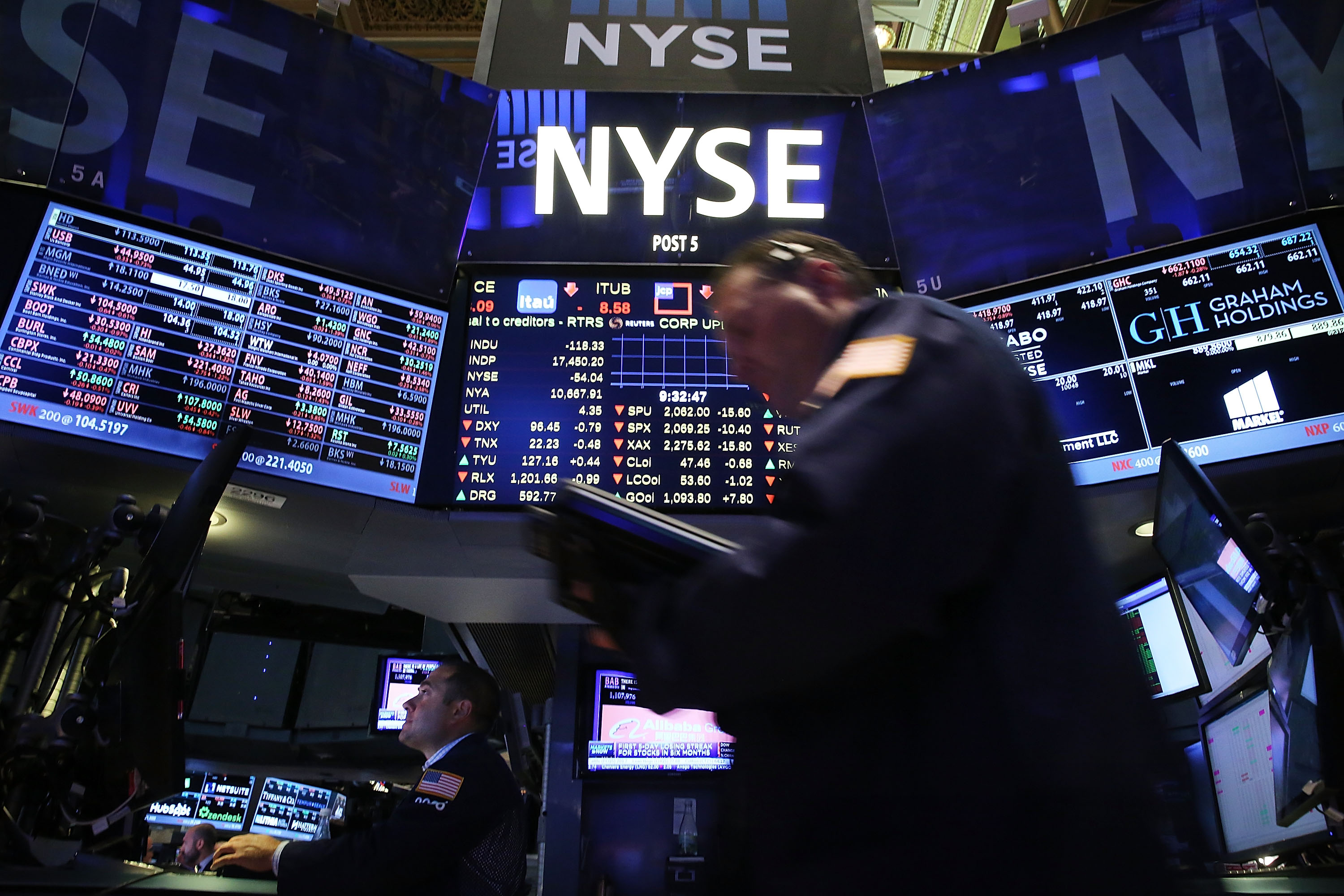The week's best financial advice
Three top pieces of financial advice — from finding high-yield savings accounts to speeding up Wall Street settlements

A free daily email with the biggest news stories of the day – and the best features from TheWeek.com
You are now subscribed
Your newsletter sign-up was successful
Here are three of the week's top pieces of financial advice, gathered from around the web:
Finding high-yield savings accounts
Consumers looking to get a better return on their savings must be willing "to jump through some hoops," said Ann Carrns at The New York Times. The average money market account yields 0.11 percent, but there are higher-paying options out there. The average interest for high-yield checking accounts at 56 banks and credit unions was 1.65 percent, according to Bankrate. Nearly a dozen yielded 2 percent or more. The catch: Only about half of those are available nationally, "and all come with lots of strings attached." Most require direct deposit and at least 10 debit transactions per month. Others require online bill pay or electronic statements. Some also limit the balance amount that can earn the higher rate, with caps as low as $500 to a high of $25,000.
The Week
Escape your echo chamber. Get the facts behind the news, plus analysis from multiple perspectives.

Sign up for The Week's Free Newsletters
From our morning news briefing to a weekly Good News Newsletter, get the best of The Week delivered directly to your inbox.
From our morning news briefing to a weekly Good News Newsletter, get the best of The Week delivered directly to your inbox.
Wall Street speeds up settlements
Anybody who has bought or sold stock knows it takes seemingly forever to get the cash, said Jason Zweig at The Wall Street Journal. Right now, the Securities and Exchange Commission requires that all stock trades "settle" within three business days. But starting Sept. 5, 2017, a coalition of financial firms and other industry bigwigs have agreed to begin settling trades within two days. Oddly enough, trades settled faster in the horse-and-buggy days of Wall Street, powered by messenger boys "lugging sacks of gold, bank checks, and stock and bond certificates" to cashier windows at Manhattan banks. Overnight settlement was standard practice until 1938. For now, if you need your money sooner than in three days, just ask. Many brokerage firms will honor such requests.
Pitfalls of paying off debt
"For many people, paying off debts early isn't the no-brainer you might think it is," said Geoff Williams at US News. The pros of paying off debt are obvious: You'll avoid interest payments and free up money to spend on other things. The negatives aren't as clear, but they definitely exist. "Debt can have a bright side." It helps build credit history and, in the case of student loans or mortgage debt, may come with a tax deduction. And remember that even if you pay off a big debt, you might be "starving a different fund" in the process. Erasing high-interest debts like credit cards is almost always advisable, but could you have put the money used to, say, eliminate a home loan to better use? You might have invested it or added to your retirement savings for greater effect.
A free daily email with the biggest news stories of the day – and the best features from TheWeek.com
-
 Political cartoons for February 16
Political cartoons for February 16Cartoons Monday’s political cartoons include President's Day, a valentine from the Epstein files, and more
-
 Regent Hong Kong: a tranquil haven with a prime waterfront spot
Regent Hong Kong: a tranquil haven with a prime waterfront spotThe Week Recommends The trendy hotel recently underwent an extensive two-year revamp
-
 The problem with diagnosing profound autism
The problem with diagnosing profound autismThe Explainer Experts are reconsidering the idea of autism as a spectrum, which could impact diagnoses and policy making for the condition
-
 The pros and cons of noncompete agreements
The pros and cons of noncompete agreementsThe Explainer The FTC wants to ban companies from binding their employees with noncompete agreements. Who would this benefit, and who would it hurt?
-
 What experts are saying about the economy's surprise contraction
What experts are saying about the economy's surprise contractionThe Explainer The sharpest opinions on the debate from around the web
-
 The death of cities was greatly exaggerated
The death of cities was greatly exaggeratedThe Explainer Why the pandemic predictions about urban flight were wrong
-
 The housing crisis is here
The housing crisis is hereThe Explainer As the pandemic takes its toll, renters face eviction even as buyers are bidding higher
-
 How to be an ally to marginalized coworkers
How to be an ally to marginalized coworkersThe Explainer Show up for your colleagues by showing that you see them and their struggles
-
 What the stock market knows
What the stock market knowsThe Explainer Publicly traded companies are going to wallop small businesses
-
 Can the government save small businesses?
Can the government save small businesses?The Explainer Many are fighting for a fair share of the coronavirus rescue package
-
 How the oil crash could turn into a much bigger economic shock
How the oil crash could turn into a much bigger economic shockThe Explainer This could be a huge problem for the entire economy